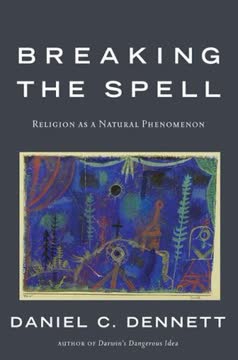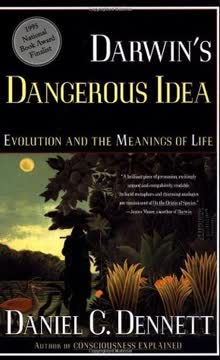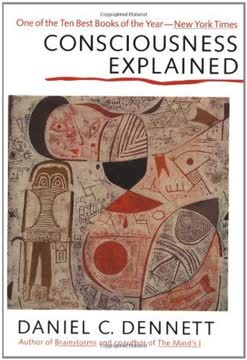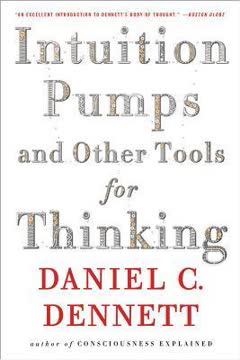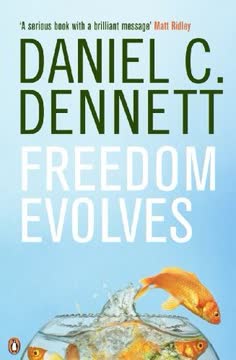Key Takeaways
1. Religion as a Natural Phenomenon Demands Scientific Scrutiny
It is high time that we subject religion as a global phenomenon to the most intensive multidisciplinary research we can muster, calling on the best minds on the planet.
Religion's pervasive influence. Religion is a powerful force that shapes social, political, and economic landscapes, as well as the personal meanings individuals find in their lives. Its global impact necessitates rigorous, multidisciplinary investigation to understand its nature and effects.
Breaking the taboo. A scientific approach to religion requires setting aside traditional reluctance and taboos. This allows for a forthright examination of religion as a natural phenomenon, free from preconceived notions or biases.
Informed decision-making. Understanding religion is crucial for making informed and just political decisions. By studying religion scientifically, we can better navigate its complexities and mitigate potential conflicts.
2. Science Can and Should Study Religion
The question is not whether good science of religion as a natural phenomenon is possible: it is. The question is whether we should do it.
Religion is a natural phenomenon. Religious experiences, beliefs, practices, texts, artifacts, institutions, conflicts, and history are all unquestionably natural phenomena. As such, they are amenable to scientific study using the tools of neuroscience, psychology, sociology, anthropology, and other disciplines.
Overcoming obstacles. While there are obstacles to the scientific study of religion, such as biases in data-gathering and investigator-interference effects, these can be overcome through rigorous methodologies and interdisciplinary collaboration. The potential benefits of understanding religion outweigh the risks of inquiry.
Gould's non-overlapping magisteria. While Stephen Jay Gould proposed that science and religion occupy non-overlapping domains, this does not preclude science from studying religion itself. Science can and should study what religion does, even if it cannot do what religion does.
3. Religion's Benefits Must Outweigh Its Costs
Eventually, we must arrive at questions about ultimate values, and no factual investigation could answer them.
Assessing the net impact. To justify the scientific study of religion, it must be shown that religion provides net benefits to humankind and that these benefits would be unlikely to survive such an investigation. This requires a careful accounting of both the positive and negative effects of religion.
Potential risks of inquiry. There is a risk that scientific investigation could damage or disable religion, potentially disrupting the life-enriching enchantment it provides. However, this risk must be weighed against the potential benefits of increased understanding.
The need for evidence. Claims about the virtue of religion must be supported by evidence, not just fervent belief. Skeptics should not be expected to refrain from expressing doubts if religious proponents are unwilling to put their convictions under the microscope.
4. The Human Mind Is Primed for Religious Belief
We may conclude, therefore, that, in all nations, which have embraced polytheism, the first ideas of religion arose not from a contemplation of the works of nature, but from a concern with regard to the events of life, and from the incessant hopes and fears, which actuate the human mind.
Hyperactive agent detection. Human beings have an innate tendency to attribute agency to anything complicated that moves, leading to the perception of spirits, gods, and other supernatural entities. This "hyperactive agent detection device" (HADD) is a key ingredient in the formation of religious beliefs.
The intentional stance. Human beings are also skilled at adopting the intentional stance, treating other entities as agents with beliefs, desires, and intentions. This allows us to make predictions about their behavior and interact with them effectively.
The power of language. Language amplifies our natural tendencies by allowing us to share and elaborate on our beliefs, creating a virtual world of imagination populated by agents that matter to us. This virtual world provides fertile ground for the development of religious ideas.
5. Folk Religions Evolved to Meet Basic Human Needs
Religious allegory has become a part of the fabric of reality. And living in that reality helps millions of people cope and be better people.
Addressing existential anxieties. Folk religions often provide comfort in the face of suffering and allay our fear of death. They offer explanations for things we can't otherwise explain, such as natural disasters and personal misfortunes.
Promoting social cohesion. Folk religions encourage group cooperation in the face of trials and enemies. By providing a shared set of beliefs and practices, they create a sense of community and solidarity.
The role of ritual. Rituals play a key role in folk religions, serving as memory-enhancement processes that help preserve and transmit cultural knowledge. They also provide a sense of order and control in a chaotic world.
6. Organized Religion Transformed Folk Religion Through Stewardship
The more we learn about the details of natural processes, the more evident it becomes that these processes are themselves creative. Nothing transcends Nature like Nature itself.
From folk to organized. The emergence of agriculture and larger settlements led to the transformation of folk religions into organized religions. This involved the development of written creeds, theological systems, and hierarchical structures.
The rise of stewardship. Organized religions are characterized by the presence of stewards, individuals who take on the responsibility of preserving and promoting religious beliefs and practices. These stewards often have a vested interest in maintaining the power and influence of their institutions.
The domestication of religion. Like domesticated plants and animals, religions have been shaped by human intervention. This has led to the development of more elaborate and sophisticated belief systems, as well as the exploitation of religious practices for political and economic gain.
7. Belief in Belief Reinforces Religious Conviction
Science is like a blabbermouth who ruins a movie by telling you how it ends.
The power of profession. Religious belief isn't always belief; it is often profession. The act of publicly declaring one's faith can be more important than the actual content of that faith.
Strategic belief maintenance. Religious institutions often employ strategies to maintain belief, such as emphasizing mystery, discouraging inquiry, and promoting a sense of community among believers. These strategies can create a self-reinforcing cycle of conviction.
The problem of indeterminacy. The vagueness and ambiguity of religious doctrines can make it difficult to determine what people actually believe. This can lead to a situation where people are more committed to the idea of belief than to the specific tenets of their faith.
8. Morality's Foundation Is Independent of Religion
As every enquiry which regards religion is of the utmost importance, there are two questions in particular which challenge our attention, to wit, that concerning its foundation in reason, and that concerning its origin in human nature.
The myth of religious morality. The claim that religion is necessary for morality is not supported by evidence. Moral behavior is found in both religious and secular individuals, and there is no clear correlation between religious belief and ethical conduct.
The source of moral values. Moral values are not derived from religion but from a combination of evolutionary predispositions, cultural norms, and individual reasoning. Religion may provide a framework for expressing and reinforcing these values, but it is not their ultimate source.
The dangers of religious morality. Religious morality can be rigid, intolerant, and prone to violence. By grounding morality in reason and empathy, we can create a more just and compassionate world.
9. Education and Open Inquiry Are Essential for a Free Society
And ye shall know the truth, and the truth shall make you free.
The value of knowledge. Knowledge is power, and it is essential for making informed decisions about our lives and our societies. We should strive to learn as much as we can about the world, even if it challenges our deeply held beliefs.
The importance of critical thinking. Critical thinking is essential for evaluating claims and arguments, identifying biases, and avoiding manipulation. We should encourage critical thinking in ourselves and in others, especially in matters of religion.
The role of education. Education is the key to creating a free and democratic society. By providing people with the knowledge and skills they need to think for themselves, we can empower them to make informed choices about their lives and their beliefs.
Last updated:
FAQ
What is Breaking the Spell: Religion as a Natural Phenomenon by Daniel C. Dennett about?
- Scientific study of religion: Dennett argues for examining religion as a natural phenomenon, using scientific and interdisciplinary methods rather than treating it as off-limits or sacred.
- Origins and evolution: The book explores how religion evolved through biological, cultural, and cognitive processes, tracing its development from folk beliefs to organized systems.
- Religion as technology and meme: Dennett describes religion as a kind of cultural technology and a complex of memes—ideas that replicate and evolve—shaped by human psychology and social forces.
- Call for open inquiry: He insists that understanding religion’s origins, functions, and effects is crucial for addressing its role in modern society and policy.
Why should I read Breaking the Spell by Daniel C. Dennett?
- Challenges taboos: The book confronts the widespread reluctance to study religion scientifically, arguing that such inquiry is essential for informed citizenship and global peace.
- Interdisciplinary insights: Dennett synthesizes philosophy, evolutionary biology, psychology, anthropology, and memetics to provide a comprehensive framework for understanding religion.
- Relevance to society: The book discusses the implications of religious belief for education, politics, morality, and social cohesion, making it relevant for both believers and skeptics.
- Encourages critical thinking: Dennett urges readers to reflect on their own beliefs and the beliefs of others, promoting open-mindedness and rational inquiry.
What are the key takeaways from Breaking the Spell by Daniel C. Dennett?
- Religion is natural and evolved: Religion arises from evolved cognitive mechanisms and cultural evolution, not from supernatural origins.
- Scientific inquiry is vital: Breaking the taboo against studying religion scientifically is necessary for understanding its complex effects—both beneficial and harmful.
- Religion’s mixed legacy: While religion can foster cooperation and meaning, it can also lead to fanaticism, conflict, and exploitation.
- Education and open discussion: Dennett advocates for education that encourages critical thinking about all religions and for policies that respect human rights over tradition.
How does Daniel Dennett define religion in Breaking the Spell?
- Social system with supernatural agents: Dennett defines religion as social systems whose participants avow belief in supernatural agents whose approval is sought.
- Distinction from spirituality: He differentiates religion from private spirituality, emphasizing the communal and supernatural aspects of religion.
- Provisional and complex: Dennett acknowledges that this definition is provisional and that religious phenomena are diverse and evolving.
- Excludes certain practices: Practices like black magic, which lack moral earnestness or communal structure, are excluded from his definition.
What is the “spell” Daniel Dennett wants to break in Breaking the Spell?
- Taboo against scientific study: The first “spell” is the cultural reluctance to examine religion scientifically, often out of respect or fear.
- Enchantment of religious experience: The second “spell” is the life-enriching power of religion, which some fear might be diminished by scientific scrutiny.
- Balancing risks and benefits: Dennett argues that the benefits of understanding religion outweigh the risks of disrupting its enchantment.
- Call for open conversation: He insists that believers and skeptics alike should be willing to question and examine religious convictions.
Can science study religion, according to Daniel Dennett in Breaking the Spell?
- Religion as a natural phenomenon: Dennett asserts that religious beliefs, practices, and institutions are amenable to scientific study, just like any other human behavior.
- Interdisciplinary approach: He advocates for combining neuroscience, psychology, anthropology, sociology, and history to understand religion’s origins and effects.
- Overcoming bias: Dennett notes that past research was often biased, but modern methods can provide more objective insights.
- Focus on effects, not replacement: Science can study what religion does and how it operates, without necessarily replacing its moral or existential roles.
What is the role of memes and memetic evolution in Daniel Dennett’s theory of religion in Breaking the Spell?
- Memes as cultural replicators: Dennett uses the concept of memes—units of cultural information that replicate and evolve—to explain how religious ideas spread and persist.
- Religion as a meme complex: Religious beliefs and practices are seen as meme complexes that have evolved to be robust, appealing, and sometimes independent of their benefits to hosts.
- Domestication and stewardship: Organized religions are maintained and revised by stewards (priests, ministers) who protect and adapt religious memes.
- Toxic and beneficial memes: Some religious memes can become toxic, spreading harmful ideologies, while others may be mutualistic or neutral.
How does Daniel Dennett explain the evolutionary and cognitive origins of religion in Breaking the Spell?
- Hyperactive agent detection: Humans evolved a tendency to attribute agency to ambiguous stimuli, leading to beliefs in spirits and gods.
- Intentional stance: People naturally interpret behavior in terms of beliefs and intentions, extending this to supernatural agents.
- Cultural and sexual selection: Religion may have evolved through group selection, sexual selection, and cultural transmission, enhancing group cohesion or individual status.
- Rituals and memory: Rituals serve as memory aids and social glue, evolving culturally to enhance transmission and cooperation.
What is the concept of "belief in belief" in Breaking the Spell by Daniel Dennett?
- Meta-belief importance: "Belief in belief" refers to valuing the social and psychological benefits of religious belief, even when literal beliefs are vague or doubted.
- Protective mechanisms: This leads to strategies that make doctrines immune to disconfirmation and discourage skepticism.
- Social cohesion: Belief in belief helps maintain social cohesion and institutional stability, sometimes more than the actual content of faith.
- Complex faith dynamics: It explains why people may defend religion’s value even if they are unsure about its truth.
How does Daniel Dennett address the relationship between religion and morality in Breaking the Spell?
- Morality without religion: Dennett finds no evidence that religious belief is necessary for moral behavior; non-religious people can be just as moral.
- Religion as social infrastructure: Religions historically provided frameworks for moral cooperation and trust, but these are less essential in modern secular societies.
- Motivations for morality: Religious morality is often motivated by reward, punishment, and emulation of divine role models, with both positive and negative effects.
- Critical examination needed: Dennett urges critical engagement with religious moral claims to reform harmful aspects and promote tolerance.
What are the main challenges and barriers to studying religion scientifically, according to Daniel Dennett in Breaking the Spell?
- Academic protectionism: Humanities and social science scholars often resist scientific approaches, claiming religion requires special interpretive methods.
- Inscrutability of belief: It is difficult to distinguish genuine belief from professed belief, especially when doctrines are incomprehensible or shielded by taboos.
- Measurement difficulties: There is no simple way to measure religious conviction; surveys and questionnaires are often unreliable.
- Need for interdisciplinary research: Dennett calls for combining psychology, neuroscience, anthropology, and social sciences to overcome these barriers.
What practical and policy recommendations does Daniel Dennett make in Breaking the Spell regarding religion’s role in society?
- Education and open inquiry: Dennett advocates teaching children about all religions factually and scientifically, encouraging critical thinking and open inquiry.
- Respect for human rights: Traditions should be respected only if they respect fundamental human rights; religious claims to exclusive land or power should be critically examined.
- Countering fanaticism: He suggests creating alternative educational institutions and promoting skepticism and accountability to counter religious extremism.
- Vigilance in politics: Dennett warns against religious fanatics in power and calls for transparent, bipartisan investigations to protect democratic institutions.
Review Summary
Breaking the Spell receives mixed reviews, with praise for its thought-provoking ideas and gentle approach to examining religion as a natural phenomenon. Critics appreciate Dennett's exploration of belief, evolutionary origins of religion, and call for scientific study. However, some find the book tedious, overly speculative, and lacking in conviction. Readers note Dennett's unique perspective among atheist authors, emphasizing his cordial tone and willingness to engage religious readers. The book's philosophical nature and meandering style are both praised and criticized, with some finding it insightful and others frustrating.
Similar Books
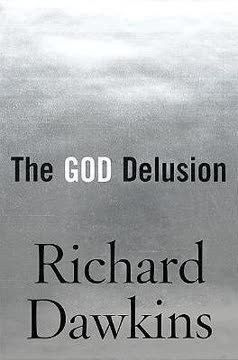
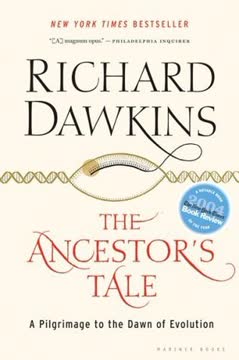
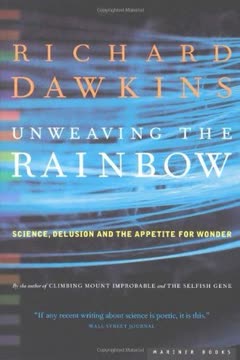
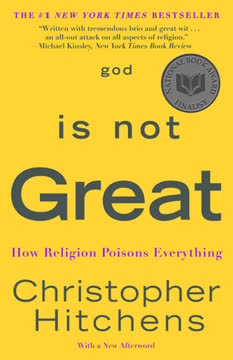
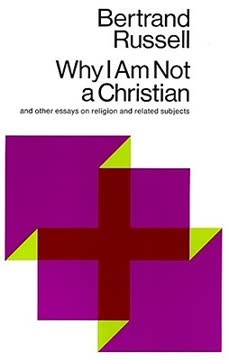
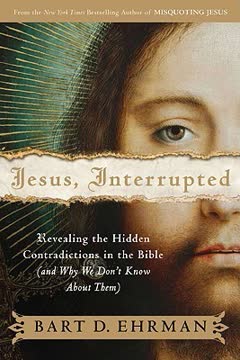
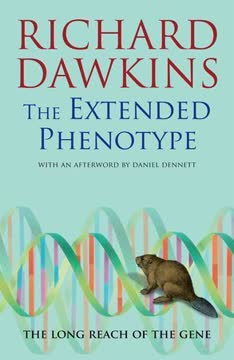

Download PDF
Download EPUB
.epub digital book format is ideal for reading ebooks on phones, tablets, and e-readers.
